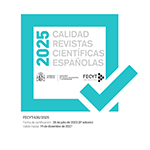"Living on the Ice". Resistance and Scepticism in "The Antichrist"
Abstract
The aim of this paper is to reconstruct the ethics of resistance that Nietzsche proposes in The Antichrist, on the basis of the image offered in the prologue as a declaration of intent: “Better to live on the ice […].” This ethics requires of the individual that he should overcome the psychology of conviction or faith and resort, as a method, to philology understood as “ephexis in interpretation”. The Nietzschean approach to this term deriving from Pyrrhonism makes it necessary to measure the utility of sceptical teachings for the individual who aspires to self-realization, to become what one is. To this end, he has to delimit commonplaces and secure his own hermeneutic position that pursues avoiding selfabnegation (Entselbstung) and thus declines to become involved in the democratic routine of modern societies. Consistent with Pyrrhonian scepticism that encourages nurturing distance and indifference, the intention here is to show, firstly, that Nietzsche exclusively addresses a community of like-minded readers, and that, secondly, the political vocation of his proposal is cancelled.Downloads
Article download
License
In order to support the global exchange of knowledge, the journal Logos. Anales del Seminario de Metafísica is allowing unrestricted access to its content as from its publication in this electronic edition, and as such it is an open-access journal. The originals published in this journal are the property of the Complutense University of Madrid and any reproduction thereof in full or in part must cite the source. All content is distributed under a Creative Commons Attribution 4.0 use and distribution licence (CC BY 4.0). This circumstance must be expressly stated in these terms where necessary. You can view the summary and the complete legal text of the licence.











